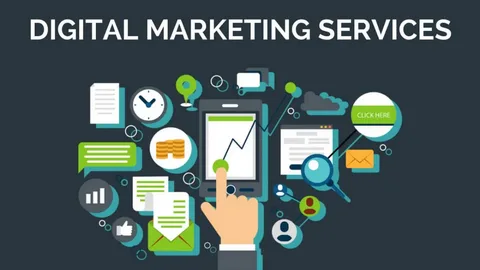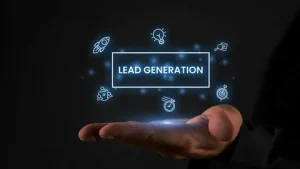Business
Achieving Success In Business With The Help Of Marcus Aurelius’ Teachings

Do you ever wonder what sets successful business leaders apart from the rest? It’s not just their intelligence, hard work, or resources – it’s also their mindset. And when it comes to developing a powerful mindset for success in business, there are few better sources of inspiration than Marcus Aurelius’ teachings. This ancient Roman philosopher and emperor was known for his stoic philosophy, which emphasized personal responsibility, self-discipline, and resilience in the face of adversity. In this blog post, we’ll explore how you can apply Marcus Aurelius’ wisdom to achieve greater success in your own entrepreneurial endeavors.
What is Marcus Aurelius’ Philosophy?
Marcus Aurelius’ philosophy is often associated with the school of Stoicism, which he practiced throughout his life. This ancient Greek philosophy emphasized the importance of personal ethics and living a virtuous life. According to this philosophy, we should focus on developing our inner strength through self-discipline, reason and logic rather than being controlled by external factors.
Marcus Aurelius believed that individuals must take full responsibility for their own lives and actions. He also believed in accepting things as they are without resistance or judgment, but rather focusing on what can be changed or improved upon.
One of the key themes in Marcus Aurelius’ philosophy is maintaining a sense of calm amidst chaos. By practicing mindfulness and mental discipline, we can cultivate an inner peace that allows us to navigate challenges with greater ease.
Ultimately, Marcus Aurelius’ teachings offer valuable wisdom for anyone seeking to develop resilience, integrity and a strong sense of personal accountability – all essential traits for success in business and beyond.
How to Apply Marcus Aurelius’ Teachings To Business
One of the most important teachings of Marcus Aurelius’ philosophy is the concept of self-discipline. In business, it’s crucial to cultivate a strong work ethic and focus on your goals. This means being disciplined enough to avoid distractions and staying committed to achieving success.
Another important aspect of Marcus Aurelius’ teachings is his emphasis on living in the present moment. When applied to business, this means focusing on what you can control right now rather than worrying about future outcomes or dwelling on past mistakes.
In addition, Marcus Aurelius believed in embracing challenges as opportunities for growth and learning. This mindset can help entrepreneurs navigate difficult times and emerge stronger from setbacks.
Practicing gratitude was also an essential part of Marcus Aurelius’ philosophy. In business, expressing gratitude towards employees, customers, and partners can help foster positive relationships and create a supportive community around your brand.
By applying these principles from Marcus Aurelius’ philosophy to their businesses, entrepreneurs can cultivate discipline, stay focused in the present moment, embrace challenges as opportunities for growth and express gratitude towards those who support them along the way.
What are The Four Pillars of Marcus Aurelius’ Philosophy?
Marcus Aurelius’ philosophy is grounded in the idea of Stoicism, which emphasizes personal ethics and practical wisdom. His teachings are aimed at helping individuals live a virtuous life and achieve tranquility amidst the chaos of the world. At its core, his philosophy revolves around four main pillars.
The first pillar is self-awareness. According to Aurelius, one must know oneself in order to understand their place in the world and make decisions that align with their values. This means reflecting on one’s own thoughts, emotions, and actions in an honest way.
The second pillar is rationality. Aurelius believed that we should approach problems with reason rather than emotion, using logic to guide our decision-making processes. By doing so, we can avoid being swayed by external factors and focus on what truly matters.
The third pillar is morality. Aurelius taught that living a virtuous life was essential for achieving inner peace and happiness. This involves acting with integrity, compassion, fairness towards others while also holding oneself accountable for one’s actions.
The fourth pillar of his philosophy is acceptance of fate or destiny – accepting things as they are without resistance or resentment but instead focusing on finding solutions to address them through rational thinking rather than allowing emotions like anger or frustration take center stage when faced with difficult situations.
Marcus Aurelius’ Teachings emphasize personal growth through reflection and mindfulness while encouraging individuals to use rational thinking rather than allowing themselves be driven by emotion alone; these principles form the foundation upon which success in business can be built upon if applied correctly
Conclusion
To wrap things up, applying Marcus Aurelius’ philosophy can greatly help entrepreneurs and business leaders achieve success. By focusing on the four pillars of his teachings – wisdom, justice, self-control and courage – one can build a solid foundation for personal and professional growth.
By harnessing the power of positive thinking, perseverance and mindfulness in their daily lives, entrepreneurs can stay focused on their goals despite any setbacks or obstacles that come their way.
Remember to keep these lessons in mind as you navigate your own business journey. Success is not guaranteed, but by putting in the hard work and adopting a growth mindset like Marcus Aurelius’, it’s certainly achievable.
Business
The Essentials Hoodie: A Timeless Staple for Modern Fashion

In a fashion world that constantly chases noise—loud logos, aggressive branding, and fast-burning trends—the Essentials Hoodie stands as a calm but powerful contradiction. It doesn’t shout for attention, yet it dominates wardrobes across the globe. From fashion-forward cities to everyday streets, the Essentials Hoodie has become a symbol of modern style that values comfort, balance, and authenticity over hype. This hoodie isn’t just clothing; it’s a reflection of how fashion has matured, slowed down, and learned to speak with confidence rather than volume.
The rise of the Essentials Hoodie didn’t happen overnight, nor was it driven by gimmicks. Its success is rooted in thoughtful design, premium materials, and an emotional connection with people who want to look good without trying too hard. It fits seamlessly into daily life, whether worn for travel, casual outings, or styled with elevated pieces for a refined streetwear look. That versatility is what separates the Essentials Hoodie from countless others—it adapts to you, not the other way around.
The Philosophy Behind the Essentials Hoodie
At the heart of the Essentials Hoodie is a design philosophy built on intention and restraint. Instead of chasing seasonal extremes, it focuses on timeless silhouettes and neutral tones that remain relevant year after year. This philosophy resonates deeply with today’s generation, which values longevity and purpose over disposable fashion. Wearing an Essentials Hoodie feels less like following a trend and more like making a personal style statement rooted in confidence.
The minimal branding is one of its strongest features. The subtle “ESSENTIALS” text, often placed thoughtfully rather than boldly, adds identity without overpowering the design. This restraint gives the hoodie a sense of maturity. It allows the wearer to express style without being defined by a logo, creating a look that feels elevated, intentional, and effortlessly cool.
Fabric That Speaks Through Feel
What truly sets the Essentials Hoodie apart is its fabric. The moment you touch it, you understand why it’s different. The cotton blend is carefully selected to provide both softness and structure, striking a perfect balance between comfort and durability. It feels substantial without being heavy, warm without being suffocating, and soft without losing shape over time.
This fabric choice isn’t accidental—it’s designed for real life. Whether you’re wearing the hoodie all day or layering it during colder seasons, it maintains its integrity. The interior fleece offers warmth and coziness, while the exterior remains smooth and refined. Over time, instead of wearing out, the hoodie molds to your body, becoming even more comfortable with each wear. That evolving comfort is something fast fashion simply cannot replicate.
Fit That Redefined Streetwear Silhouettes
The Essentials Hoodie introduced a fit that quietly reshaped modern streetwear. Slightly oversized yet carefully structured, it offers freedom without sloppiness. The dropped shoulders, relaxed body, and balanced sleeve length create a silhouette that feels intentional rather than accidental. This fit flatters different body types and allows for easy layering, making it incredibly versatile across seasons.
Unlike hoodies that feel either too tight or excessively baggy, the Essentials Hoodie sits in a sweet spot. It drapes naturally, giving a clean look whether worn alone or layered under jackets and coats. This thoughtful approach to fit is why the hoodie works just as well in casual environments as it does in more styled, fashion-forward settings.
Color Palettes Inspired by Real Life
One of the most defining elements of the Essentials Hoodie is its color range. Instead of chasing flashy or seasonal colors, it leans into neutral, earthy, and muted tones. Shades like taupe, oatmeal, cement, black, and muted grey feel grounded and wearable. These colors don’t compete with the rest of your outfit—they complement it.
This approach to color makes the hoodie incredibly easy to style. You can pair it with denim, cargos, tailored trousers, or even shorts without worrying about clashing tones. The muted palette also adds to the hoodie’s timeless appeal. Years from now, these colors will still feel relevant, proving that thoughtful design always outlasts trends.
Everyday Versatility Without Effort
What makes the Essentials Hoodie truly special is how naturally it fits into everyday life. It’s not reserved for special occasions or styled only for photos—it’s built to be worn. Whether you’re heading out for a quick errand, traveling long hours, meeting friends, or simply relaxing, the hoodie adapts to your day effortlessly.
This versatility comes from a combination of comfort, fit, and understated design. You don’t need to overthink how to wear it. Throw it on with sneakers for a casual look, or layer it with a structured coat and boots for something more refined. The hoodie never feels out of place, which is why so many people reach for it repeatedly without hesitation.
Craftsmanship That Holds Up Over Time
Durability is often overlooked in modern fashion, but the Essentials Hoodie places it front and center. From reinforced stitching to quality ribbed cuffs and hems, every detail is designed to withstand regular wear. The hoodie holds its shape even after repeated washing, maintaining its fit and feel far longer than average alternatives.
This commitment to craftsmanship makes the hoodie more than just a purchase—it’s an investment. Instead of cycling through multiple lower-quality hoodies, owning one Essentials Hoodie often replaces several others. That long-term value adds to its appeal, especially for those who want quality pieces that age gracefully.
Cultural Impact and Global Appeal
The Essentials Hoodie has become a cultural staple, embraced by creatives, athletes, and everyday fashion enthusiasts alike. Its appeal crosses borders, age groups, and lifestyles. You’ll find it worn in fashion capitals, college campuses, and quiet neighborhoods alike. That universal acceptance speaks volumes about its design strength.
What’s interesting is how the hoodie avoids being tied to a single subculture. It doesn’t belong exclusively to skate culture, luxury fashion, or athleisure—it exists comfortably in all of them. This fluid identity is part of what makes it so powerful. It allows wearers to define the hoodie’s meaning through their own lifestyle and expression.
Styling the Essentials Hoodie Your Way
Styling the Essentials Hoodie is less about rules and more about intuition. Its clean design invites experimentation. Pair it with classic denim for a timeless look, or wear it with tailored trousers for a modern contrast. Layer it under an oversized coat or wear it solo—it works both ways.
Footwear choices can shift the entire vibe. Sneakers keep it casual and relaxed, while boots or minimalist shoes elevate the outfit. Accessories like caps, crossbody bags, or subtle jewelry can add personality without overpowering the hoodie’s simplicity. This adaptability ensures that the hoodie never feels repetitive, even when worn often.
Seasonal Adaptability That Makes Sense
Another strength of the Essentials Hoodie is its ability to transition across seasons. In cooler months, it acts as a reliable layering piece, providing warmth without bulk. During transitional weather, it’s perfect on its own, offering just enough insulation while remaining breathable.
Even in milder climates, the hoodie finds its place. Its balanced fabric prevents overheating, making it suitable for evening wear or air-conditioned environments. This year-round usability adds to its practicality and explains why it remains a constant in wardrobes rather than being packed away after one season.
Why the Essentials Hoodie Feels Personal
Beyond design and quality, there’s an emotional connection people develop with their Essentials Hoodie. It becomes a go-to piece, associated with comfort, familiarity, and confidence. Over time, it feels less like a garment and more like a trusted companion—something you reach for without thinking.
This emotional attachment is rare in fashion, especially with everyday items. The hoodie doesn’t demand attention, yet it consistently delivers comfort and style. That reliability builds trust, and trust turns into loyalty. Once someone owns an Essentials Hoodie, it often becomes difficult to settle for anything less.
A Modern Definition of Luxury
Luxury today isn’t about excess—it’s about intention. The Essentials Hoodie represents this shift perfectly. It doesn’t rely on extravagant details or flashy branding to prove its worth. Instead, it focuses on how it feels, how it fits, and how it integrates into real life.
This understated approach to luxury resonates strongly with modern consumers. It aligns with a desire for meaningful purchases that offer long-term value rather than short-term excitement. The hoodie embodies a quiet confidence, proving that true quality doesn’t need to announce itself.
The Future of the Essentials Hoodie
As fashion continues to evolve, the Essentials Hoodie is well-positioned to remain relevant. Its timeless design, neutral aesthetic, and focus on quality ensure that it won’t be left behind by shifting trends. Instead, it will continue to adapt subtly, staying true to its core identity.
Future collections may refine fits, textures, or colors, but the essence will remain the same. That consistency is what builds legacy. The Essentials Hoodie isn’t chasing the future—it’s already built for it.
More Than Just a Hoodie
The Hellstar Hoodie is more than a comfortable layer or a fashionable item. It represents a mindset—one that values simplicity, quality, and authenticity. In a world overloaded with options, it stands out by doing less, but doing it better.
Owning an Essentials Hoodie means choosing intention over impulse and comfort over compromise. It’s a piece you can rely on, grow with, and style endlessly. And in modern fashion, that kind of reliability is not just rare—it’s essential.
Business
Generating Leads with Digital Marketing in Bangalore

Every business needs leads. No leads means no calls, and no calls means no sales.
Many business owners feel this problem every day.
>They have a website.
> Run ads sometimes.
>Post on social media.
Still, enquiries don’t come regularly.
This is where a digital marketing company in Bangalore plays a key role. Not with noise, or with fancy talk. But with clear systems that bring people who are already searching. If you delay this step, your competitors don’t. And once customers trust them, it’s hard to pull them back.

What Is Lead Generation in Simple Words?
Lead generation means getting contact details of people who want your service.
It can be:
- A phone call
- A WhatsApp message
- A form fill
- An email enquiry
These are not random people.
They already have a need.
They are just choosing who to contact first.
This is why timing matters.
A digital marketing agency in Bangalore focuses on reaching users at the right moment, not after they move on.
Why Lead Generation Is Hard Without Experts
Many businesses try to do marketing on their own.
Some common problems:
- Ads shown to the wrong people
- Website visitors leave without contacting
- Budget spent but no follow-up
- No idea which channel is working
This creates frustration.
A professional digital marketing company in Bangalore avoids this confusion by setting a proper path from first click to enquiry.
How Digital Marketing Services in Bangalore Help Generate Leads
Let’s break this down step by step.
1. Understanding How Customers Search
People don’t search like businesses think.
They search like this:
- “near me”
- “best service”
- “price”
- “reviews”
Digital marketing services in Bangalore focus on these patterns.
When your brand appears during this search stage, leads start coming naturally.
2. Website That Talks, Not Just Shows
Many websites only display information.
They don’t guide users.
A digital marketing agency in Bangalore works on:
- Clear headings
- Simple content
- Easy contact buttons
- Strong call actions
This helps visitors decide faster.
When users feel guided, they reach out.
3. Search Visibility That Brings Intent Leads
People trust Google.
If your business is missing there, it feels invisible.
Digital marketing services in Bangalore help brands:
- Appear on search pages
- Rank for service-based queries
- Show up when buyers are ready
These leads convert faster because intent is already present.
4. Paid Ads That Focus on Enquiries, Not Clicks
Many ads fail because they chase clicks only.
Clicks don’t pay bills.
Leads do.
- Target service-ready users
- Filter low-quality traffic
- Push users to call or message
This saves money and time.
5. Local Reach for Local Business Growth
For service businesses, local presence matters.
A digital marketing company in Bangalore helps you:
- Appear in local results
- Get map visibility
- Attract nearby customers
Local leads convert faster because distance is not a barrier.
The Silent Role of Digital Marketing Companies in Bangalore
Many people don’t see what happens behind the scenes.
But Digital Marketing Companies in Bangalore work on:
- Tracking enquiry sources
- Improving weak pages
- Reducing wasted spend
- Adjusting campaigns weekly
This steady work brings consistent leads, not random results.
And consistency builds trust.
How Leads Move Through the Digital Funnel
Here’s a simple view:
| Stage | What User Does | What Marketing Does |
| Awareness | Searches online | Shows your brand |
| Interest | Visits website | Builds clarity |
| Decision | Compares options | Creates trust |
| Action | Calls or messages | Captures lead |
Digital Marketing Companies in Bangalore manage every stage carefully.
Miss one step, and the lead drops off.
Building Trust Before the First Call
Why One-Time Marketing Doesn’t Work
Marketing is not a one-day job.
Trends change.
Search behavior changes.
Competition changes.
A long-term partnership with a digital marketing company in Bangalore helps you:
- Stay visible year-round
- Adapt quickly
- Keep leads flowing
Stopping marketing suddenly breaks the chain.
And restarting takes time.
Choosing the Right Digital Partner Matters
Not all agencies think about leads.
Some focus only on:
- Followers
- Likes
- Views
But these don’t always turn into business.
The right digital marketing agency in Bangalore asks:
- Who is your buyer?
- What makes them contact?
- Where do they hesitate?
This thinking separates serious agencies from basic service providers.
Leads are the lifeline of any business. Waiting costs more than starting. With the support of Digital Marketing Companies in Bangalore, brands don’t just wait for customers, they stay visible where decisions are made.
Business
Unlocking Precision: The Benefits of Laser Cutting in Swindon

Laser cutting has transformed the way modern fabrication and manufacturing industries operate. With its ability to deliver unmatched precision, clean finishes, and consistent results, laser is now a preferred solution for businesses that require accuracy and efficiency. In Swindon, this technology is widely used by manufacturers, engineers, construction firms, and designers who need high-quality cutting services for a wide range of applications.
As industries evolve and customer expectations rise, traditional cutting methods often struggle to keep up with demand. Laser cutting offers a modern alternative that supports innovation, reduces production time, and ensures repeatable quality across every project.

Understanding Laser Technology
Laser cutting is a process that uses a focused laser beam to cut through materials with extreme accuracy. The laser follows a computer-controlled design, allowing it to create complex shapes and fine details that would be difficult to achieve manually.
Because the cutting path is digitally programmed, laser ensures consistency across multiple parts. This makes it ideal for both small custom jobs and large production runs. The result is a clean cut with minimal distortion and little need for secondary finishing.
Why Swindon Businesses Rely on Laser Cutting
Swindon has a strong industrial presence and a growing demand for advanced fabrication solutions. Local businesses choose laser cutting because it offers reliability, speed, and flexibility. Whether producing components for engineering projects or decorative features for architectural designs, laser meets the diverse needs of Swindon’s industries.
Another advantage is accessibility. Having professional laser cutting services available locally reduces lead times and simplifies communication. This helps businesses stay on schedule and respond quickly to project changes.
Materials Suitable for Laser Cutting
Laser cutting is known for its versatility. It can be used on a wide range of materials, making it suitable for many industries operating in Swindon. Commonly cut materials include steel, stainless steel, aluminium, brass, copper, acrylic, plastics, and certain types of wood.
Each material requires precise laser settings to achieve optimal results. Experienced operators ensure the correct power, speed, and focus are applied, resulting in smooth edges and accurate dimensions without compromising material strength.
Industrial Applications of Laser Cutting
In construction and fabrication, laser-cut metal components are used for structural supports, custom fittings, and architectural elements. The ability to cut precise shapes improves both functionality and visual appeal.
Laser Cutting for Design and Creative Projects
Beyond industrial use, laseris also popular in creative and design-focused projects. Sign makers, interior designers, and artists in Swindon rely on laser cutting to produce intricate patterns, lettering, and decorative panels.
The clean finish and design flexibility make laser cutting ideal for bespoke signage, branded displays, and customized design elements. This allows businesses to stand out with unique and professional-looking results.
Benefits of Laser Cutting Over Traditional Methods
One of the main advantages of laser is precision. The laser beam can follow complex paths with high accuracy, making it suitable for detailed designs and tight tolerances. Traditional cutting methods often struggle to achieve the same level of detail.
Speed is another major benefit. Laser cutting machines operate quickly and efficiently, allowing projects to be completed faster. Reduced setup time and automated processes also help lower labor costs.
Laser cutting also produces minimal material waste. The narrow cutting width and precise control ensure maximum use of raw materials, making it a cost-effective solution.
Custom Laser Services in Swindon
Many laser providers in Swindon offer customized services to suit specific project requirements. Customers can submit their own digital designs or work with professionals to create tailored solutions.
Custom laser cutting is ideal for prototypes, limited production runs, and specialized components. This flexibility supports innovation and allows businesses to adapt designs quickly without investing in expensive tooling.
Prototyping and Small-Batch Production
Prototyping is an essential stage in product development, and laser cutting excels in this area. Designers and engineers can quickly produce prototypes, test functionality, and refine designs before moving to full production.
For small-batch production, laser cutting provides a cost-effective alternative to mass manufacturing. It allows businesses in Swindon to produce high-quality parts without committing to large quantities upfront.
Quality Assurance and Accuracy
High-quality laser cutting services focus on maintaining strict accuracy standards. Modern machines are regularly calibrated, and cutting parameters are carefully monitored to ensure consistent results.
In Swindon, reputable providers place a strong emphasis on quality control. This ensures that every part meets specifications and performs as expected, which is especially important for engineering and safety-critical applications.
Cost and Efficiency Considerations
Laser cutting is known for its efficiency and long-term cost savings. While the technology itself is advanced, the reduced labour, faster production times, and minimal waste make it an economical choice.
Working with local laser services in Swindon further reduces costs by eliminating long transportation times and improving turnaround speed. This helps businesses manage budgets while maintaining high production standards.
Environmental Advantages of Laser Cutting
Sustainability is becoming increasingly important in manufacturing, and laser cutting supports environmentally responsible practices. The process generates less waste and often requires fewer additional finishing steps.
Efficient energy use and precise material cutting contribute to reduced environmental impact. For Swindon businesses aiming to adopt greener manufacturing methods, laser cutting is a practical and responsible choice.
Choosing a Professional Laser Cutting Service
Selecting the right laser cutting provider is essential for project success. Businesses should consider factors such as equipment quality, operator experience, material capabilities, and turnaround time.
A reliable provider will communicate clearly, offer flexible solutions, and deliver consistent quality. Building a strong working relationship with a local laser cutting service helps ensure smooth project execution.
Future Growth of Laser in Swindon
As manufacturing technology continues to advance, laser cutting is expected to play an even bigger role in Swindon’s industrial development. Automation, improved software, and enhanced machine performance will further increase efficiency and precision.
Businesses that invest in cutting solutions will remain competitive and well-positioned to meet future demands. The technology’s adaptability ensures it will continue to support innovation across multiple industries.
Conclusion
Laser cutting is a powerful and versatile manufacturing process that supports a wide range of applications in Swindon. Its precision, speed, and efficiency make it a preferred choice for businesses seeking high-quality fabrication solutions. Laser Cutting in Swindon continues to help local industries improve productivity, reduce waste, and achieve consistent results.
By choosing professional laser services, businesses can enhance product quality, streamline production, and stay competitive in a rapidly evolving market.
-
Business3 years ago
Cybersecurity Consulting Company SequelNet Provides Critical IT Support Services to Medical Billing Firm, Medical Optimum
-
Business3 years ago
Team Communication Software Transforms Operations at Finance Innovate
-
Business3 years ago
Project Management Tool Transforms Long Island Business
-
Business2 years ago
How Alleviate Poverty Utilized IPPBX’s All-in-One Solution to Transform Lives in New York City
-
health3 years ago
Breast Cancer: The Imperative Role of Mammograms in Screening and Early Detection
-
Sports3 years ago
Unstoppable Collaboration: D.C.’s Citi Open and Silicon Valley Classic Unite to Propel Women’s Tennis to New Heights
-
Art /Entertainment3 years ago
Embracing Renewal: Sizdabedar Celebrations Unite Iranians in New York’s Eisenhower Park
-
Finance3 years ago
The Benefits of Starting a Side Hustle for Financial Freedom






























